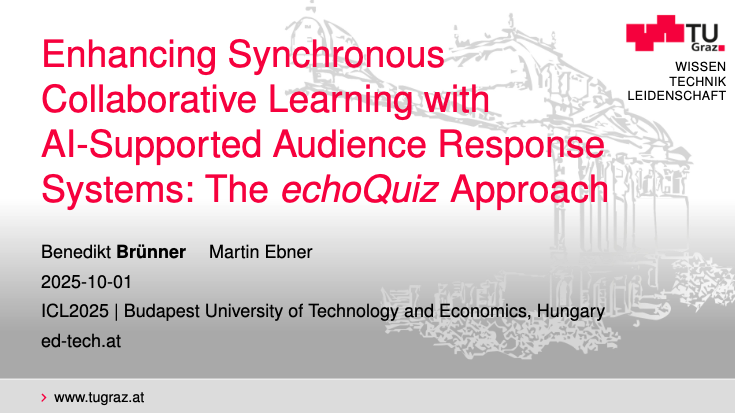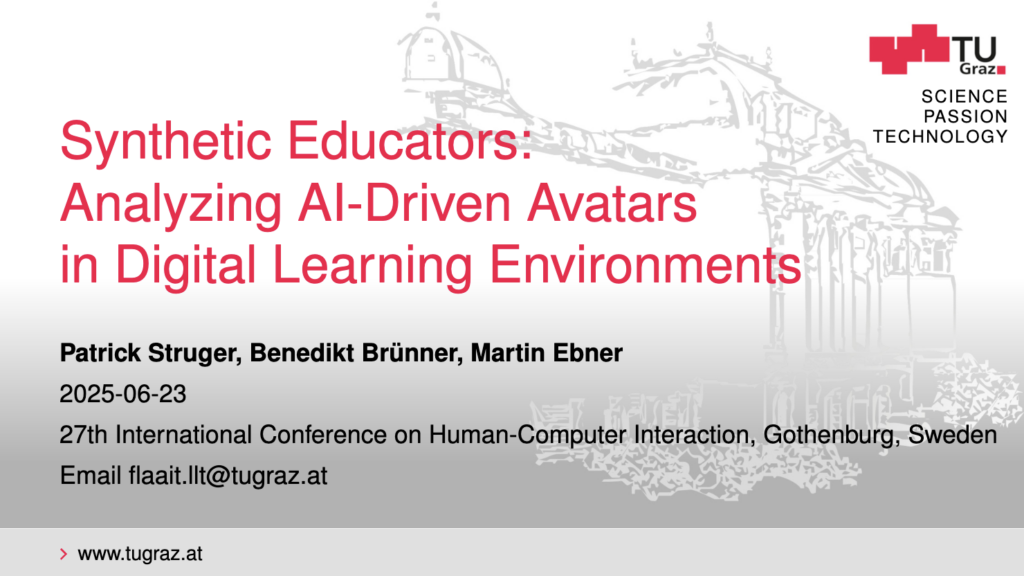Our publication about „Exploring genAI Chatbots in MOOCs: Analyzing Student Interactions and Self-Regulated Learning Behaviors“ got published.
Abstract:
The integration of generative AI (genAI) chatbots into Massive Open Online Courses (MOOCs) presents new opportunities for supporting self-regulated learning (SRL). This study examines 1,302 chat-bot interactions from two Austrian blended MOOCs, where a retrieval-augmented generation (RAG) chatbot based on GPT 4o-mini was deployed to assist students. Using the process-action framework by Lai (2024), we categorize chatbot interactions into key SRL processes: defining , seeking, engaging, and reflecting. Results show that students predominantly use the chatbot for information retrieval, content summarization, and quiz-based reinforcement, with 41% of interactions classified as information search queries and 17% as rehearsal. However, engagement with metacognitive SRL strategies, such as goal setting and self-evaluation, remains low. Additionally, non-learning interactions, including humor-driven conversations, functional queries, and prompt injection attempts, showcase ways students interact with AI in educational settings. Based on our findings, we propose refinements to the existing SRL process-action framework, incorporating new categories to better account for genAI chatbot-specific interactions, such as Evaluation of Information Quality and Reformatting. We discuss implications for chat-bot integration in MOOCs, emphasizing AI-generated quizzes, structured feedback, and safeguards against misuse.
[article @ book’s homepage]
[draft @ ResearchGate]
Rerence: Brünner, B., Ebner, M., Schön, S. (2025). Exploring GenAI Chatbots in MOOCs: Analyzing Student Interactions and Self-regulated Learning Behaviors. In: Hamonic, E., Sharrock, R. (eds) Digital Education: Shaping Sustainable Lifelong Learning for All in the Era of AI. EMOOCS 2025. Lecture Notes in Computer Science, vol 15733. Springer, Cham. https://doi.org/10.1007/978-3-032-00056-9_2
This is an impactful contributions, methodological rigor, and exceptional novelty in the research field of AI in education using a Chatbot within a MOOC-platform (iMooX.at)





